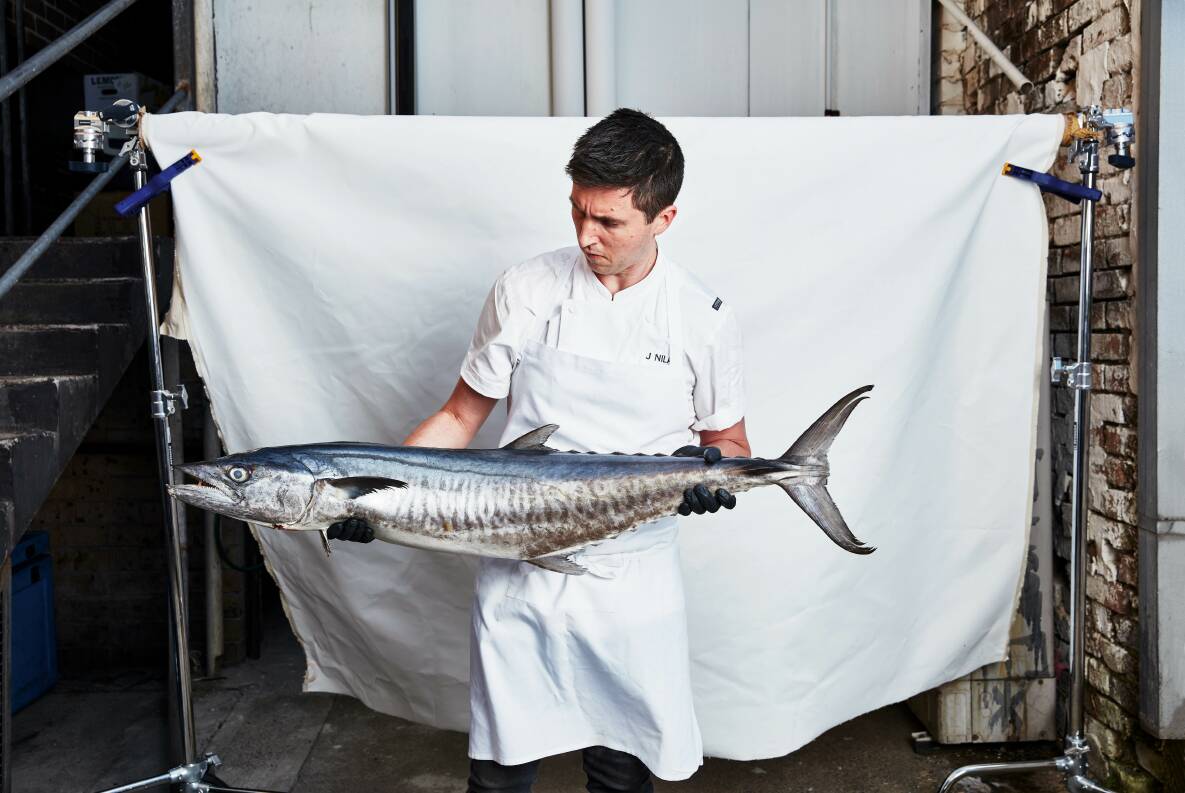
Many words have been used to describe award-winning chef Josh Niland since he opened his first restaurant, Saint Peter, in 2016.
Groundbreaking. Pioneer. Trailblazer.
All of them are deserved.
Niland, 33, is considered one of the world's foremost authorities when it comes to fish - how we catch it, transport it, store it, sell it, buy it, fillet it and cook it. He advocates a sustainable "nose to tail" approach to this finite resource, one that utilises the less understood and traditionally discarded parts of a fish.
Blood, eyes, scales, organs - Niland finds beauty, inspiration, texture and flavour in them all.
You won't see glassy-eyed fish lying on ice at his fish butcheries. It is dry-aged instead. Small fish are stored on perforated trays and large fish are hung on hooks in a coolroom. Fish gut is removed carefully and in one piece, starting at the gill, and 90 per cent of it used.
Niland delights in sharing his seafood creations on his social media accounts (he has close to 300,000 followers on Instagram alone) and it is not uncommon to see big-name celebrity chefs singing their praises in the comments.
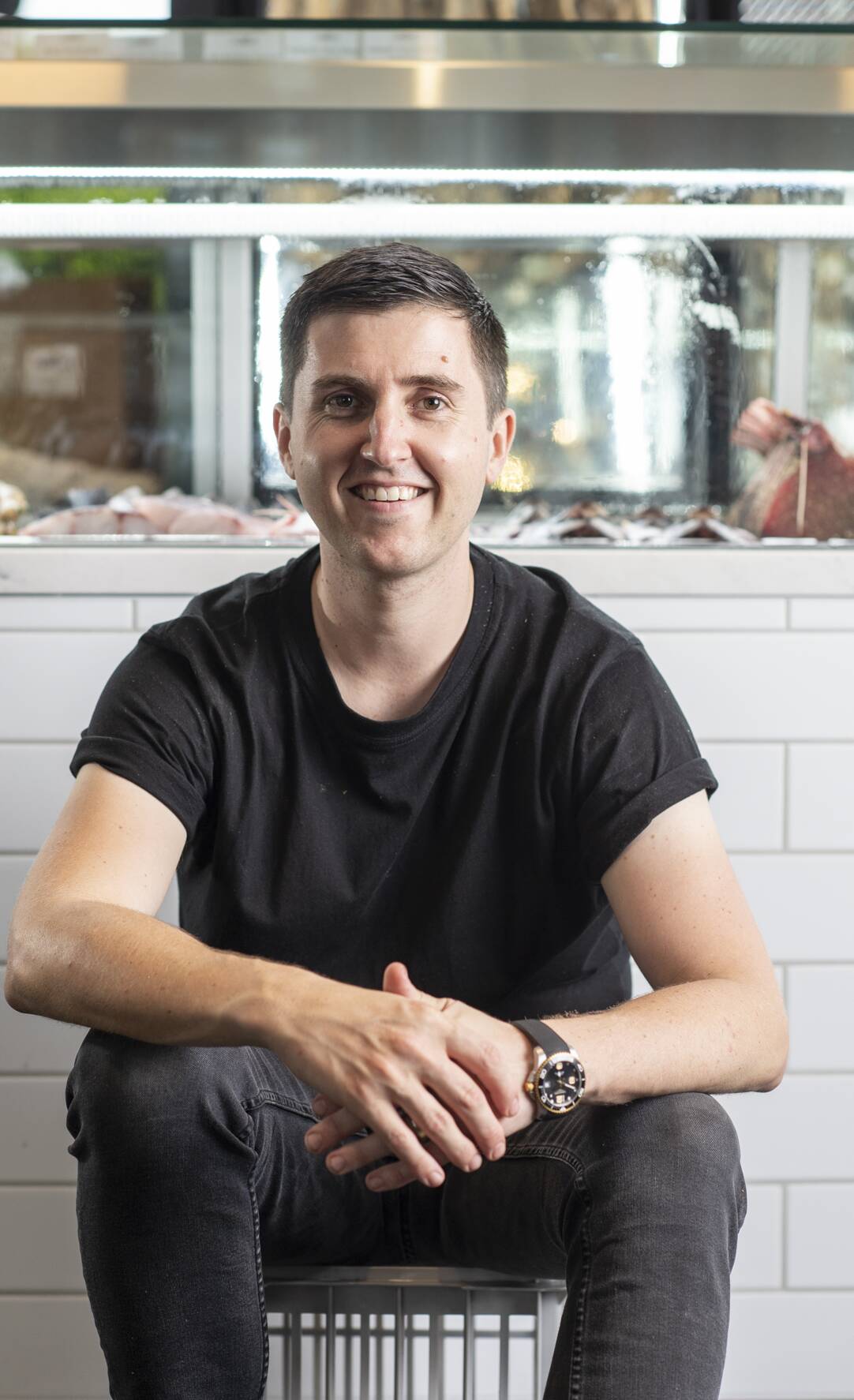
When I use the term "fan-girl" to describe the way world-renowned chefs speak to him - and of him - Niland laughs. I don't think he has heard that particular word used before.
"It's wonderful, and very flattering, that people say nice things," he says.
"What I'm doing is merely challenging history to say that the way that we've handled fish has just been so terrible, to be blunt."
Niland's story to date reveals a timeline marked by calculated, clever, career-advancing decisions. He doesn't take risks when it comes to business. On the flip side of the coin he's curious, creative and a free thinker.
I make the assumption that he "experiments" a lot with his meticulous fish butchery techniques, his preparation, and his presentation. He doesn't. Niland already has a concept, or an idea, or an image, in his mind and he executes it. Then he shares it to educate others.
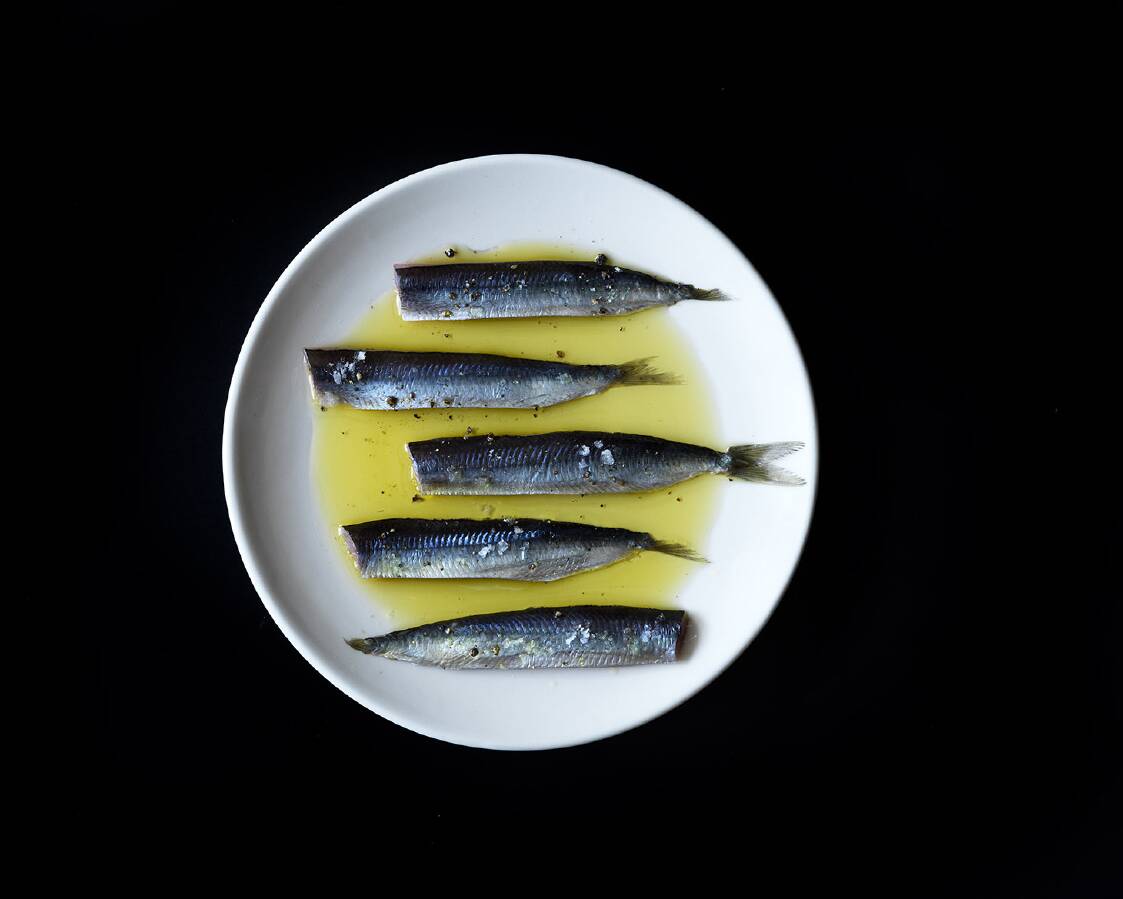
The photos on his social media pages? He took them himself.
"Yes, I handle all the accounts," he says.
"I've always enjoyed taking photos and when you're shooting such nice specimens in venues with good light, it's really quite simple.
"It saves money, too, and it's more authentic, less contrived.
"I think that when seen through a professional lens, the subject of a photograph can be seen as a task, rather than a joy. By taking my own photos I can show my joy, and share it."
Niland's story begins in Maitland, just north of Newcastle, where his parents ran an accounting business. A sporty child, he dreamed of playing professional cricket. Then he was diagnosed with cancer at the tender age of eight. Three years of intense treatment followed. Unable to play sport and often absent from school, Niland occupied himself by watching cooking shows on television and reading recipe books.
He also started to cook. Preparing meals for his family made him happy and he relished the sense of responsibility. This continues to drive him today.
A pivotal moment in Niland's career was meeting chef Stephen Hodges and working with him at Fish Face.
"I was 18 and to have someone as gifted as Steve come along and say 'This is how you cook this and this is how you prepare that', you're able to curiously investigate what he's saying and you're allowed to fail," Niland says.
"I think that was one of the biggest things for me - being allowed to cook and mess up and cook and mess up again, and to actually get better at it. I don't think many chefs, at a young age, are exposed to that tolerance or acceptance of failing.
"Steve invested a lot of his time with me, and he didn't share that with lots of people. But when he was in front of somebody that he thought would be able to do something with it, he gave everything. It was my responsibility to do something with it."
And so Niland has. He has gone on to write two groundbreaking cookbooks (with a third in the works), hosts fish butchery classes, speaks publicly about sustainability and waste minimisation, and shares his tricks of the trade through online video tutorials.
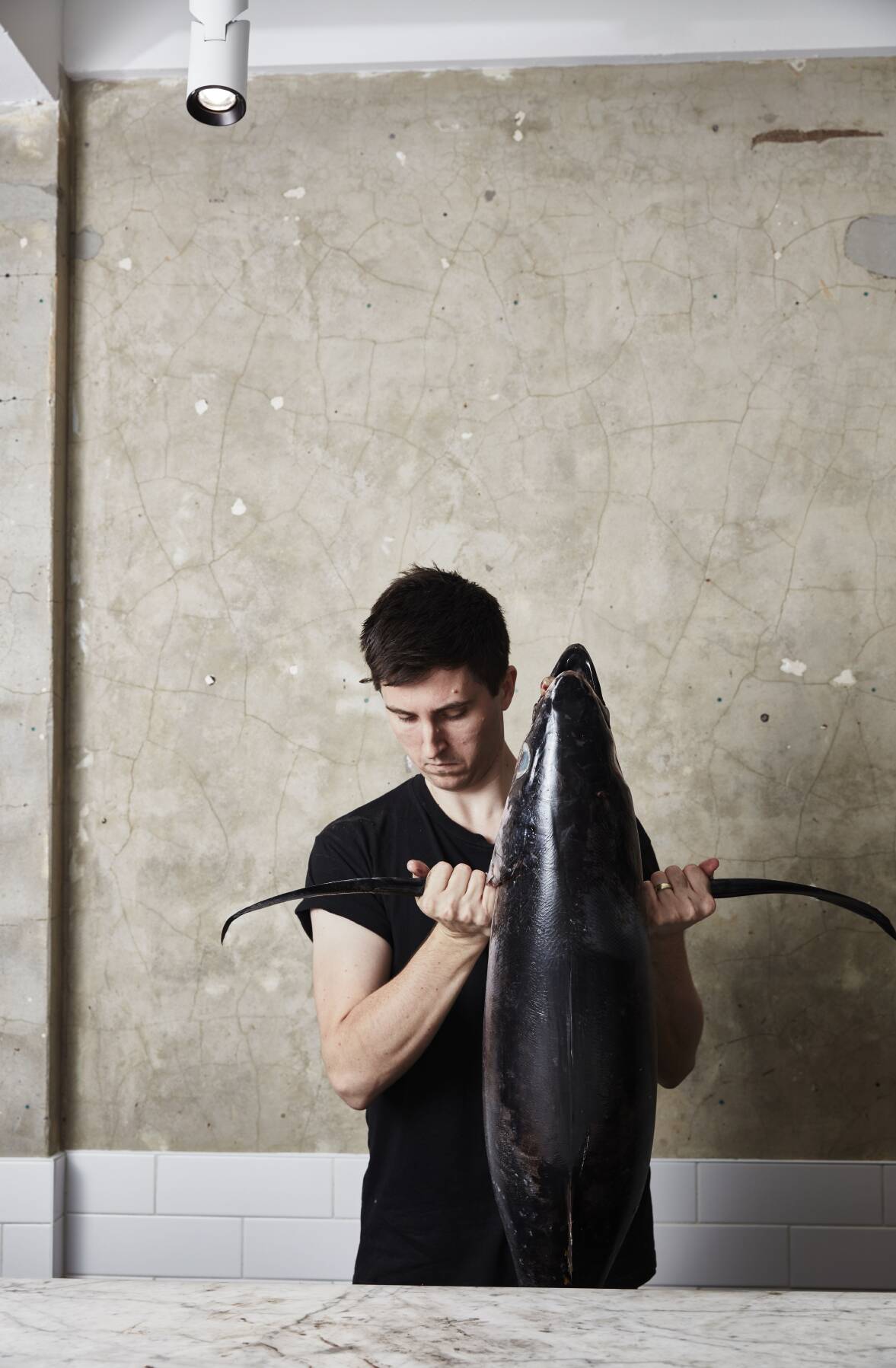
The Whole Fish Cookbook won a swag of awards upon its release in 2018 through Hardie Grant Publishing. Niland became the first Australian to win a James Beard book of the year award. Its follow-up, Take One Fish, looks at ways fish and meat can be used in such a way that they are interchangeable.
Niland has also just returned from Spain, where he made presentations as a board member with the Basque Culinary Centre, one of the world's most revered culinary schools.
"It's an excuse to meet and rub shoulders with like-minded people, and in this case it was a kid from Maitland rubbing shoulders with people that I used to have posters of in my bedroom. It was quite extraordinary to be in such esteemed company," Niland says.
A three-month internship at Heston Blumenthal's three-Michelin-starred The Fat Duck Development Kitchen in Bray was a life-changing experience for a wide-eyed but ambitious Niland. He returned to Australia with a spring in his step and a determined look in his eye. He knew what he wanted to do, and that was to open his own restaurant.
Two years after opening his first restaurant, Saint Peter, in the Sydney suburb of Paddington, Niland opened Australia's first fish butchery - Fish Butchery - a few doors down from Saint Peter on Oxford Street. In 2021 he opened Charcoal Fish in Rose Bay (his take on a traditional fish and chip offering) and earlier this year he opened a second Fish Butchery in Waterloo.
When speaking to Niland I am struck by his intelligence and his drive. He's serious, clinical, even, but he is also an articulate and generous communicator. I ask him why he first decided to direct his time and intelligence to food and cooking. He pauses to think before answering.
"I took my creativity and natural curiosity about what's possible with fish and ran with it," he says.
"The biggest gaping hole I could see was that half the fish that comes out of the water globally goes in the bin. And once that comes into the restaurant, then half of it goes into the bin again.
"We're working with one of the most precious, fragile, food items in the world that is very finite and isn't available forever, and we continue to throw it in the bin.
"And I think for a long time it's been put into the too-hard basket. People would tell me that no one would want to eat what I'm cooking or accept what I'm doing, but if you transfer the world of fish into the world of meat, you every opportunity to achieve desirable outcomes if you start to think of fish as more of an animal."
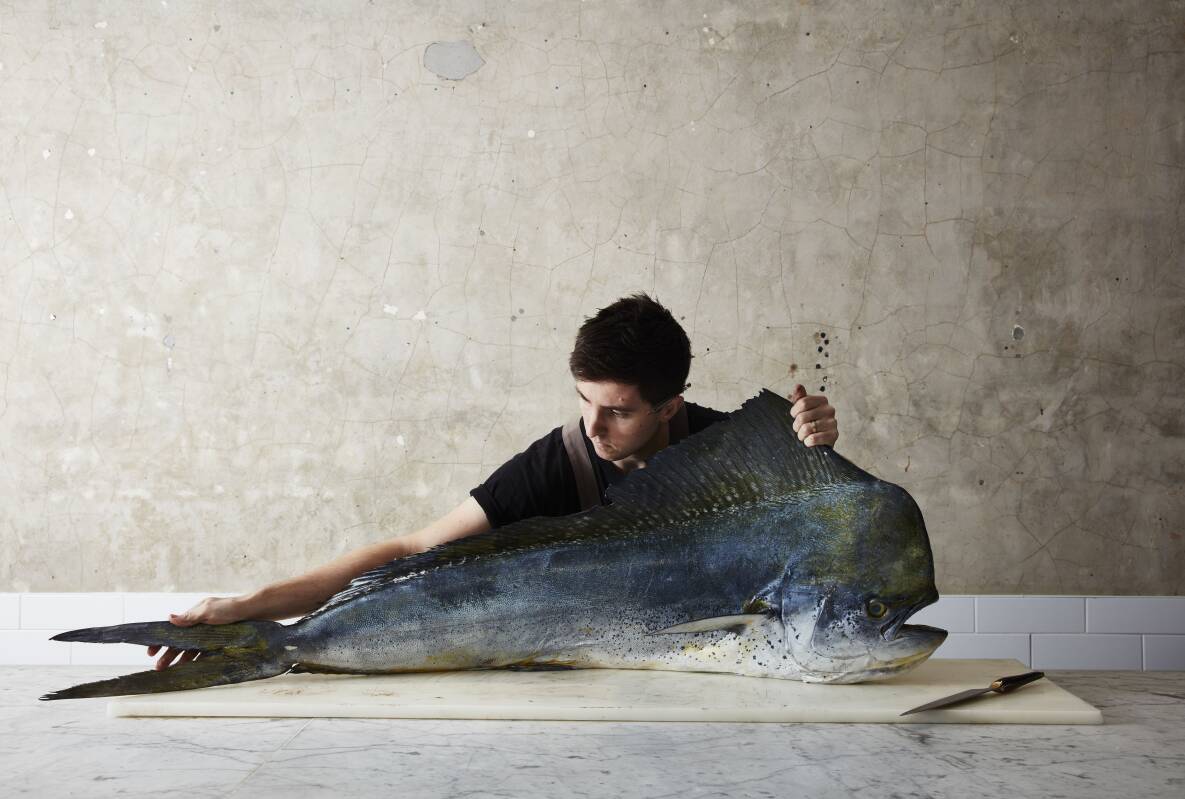
His interest in fish and sustainability, though, was a by-product of his desire to save money. Niland was 28 when he opened his first restaurant. Fish is expensive.
"When I opened Saint Peter and I got the first invoice for my fish and it was $5000, my first thought was that $2500 was already in the bin. It didn't make sense," he says.
"So an economic concern shifted into creativity: 'Well, how do I find a solution to this problem, because this problem will be re-occurring? If I want to keep buying the best product then I have to come up with a way to use all of it'.
"And then, simultaneously, hand in hand, economics and ethics started to walk together.
"In 2019 we got nominated in the World Restaurant Awards for sustainability, and that was, I suppose, unintentional. It was in part but it's not like we stumbled into it, because we knew what we were doing, but we were like 'Oh wow, OK, so we're the sustainable ones. We're doing this. We're committing time, resources, labour, everything to really investigating this properly'.
"Now I personally feel the responsibility to come out with - I hope - a global solution where we can transform an industry that has forever been built out of quantity over quality."
The future is looking bright - and very, very busy - for Niland. He and wife Julie have taken over the Grand National Hotel in Paddington and will open a 45-seat version of Saint Peter there.
"When we first got introduced to it, it seemed far too big and gnarly, but eventually it kind of grew on us," Niland says.
"In addition to the restaurant we'll have a 15-seat private dining room, a 35-seat bar, and then 16 boutique hotel rooms upstairs.
"Given the climate, both environmentally and financially, I'm going to sit on whether or not I keep the space on Oxford Street or whether I move it on. I don't think we can make that decision just yet."
Then there's Fish Butchery's new alliance with Sydney gourmet food delivery service, Providoor. Fish Butchery products and pre-prepared meals are now being delivered to households as far afield as Newcastle to the north, and Canberra to the south. It's another practical business decision by Niland.
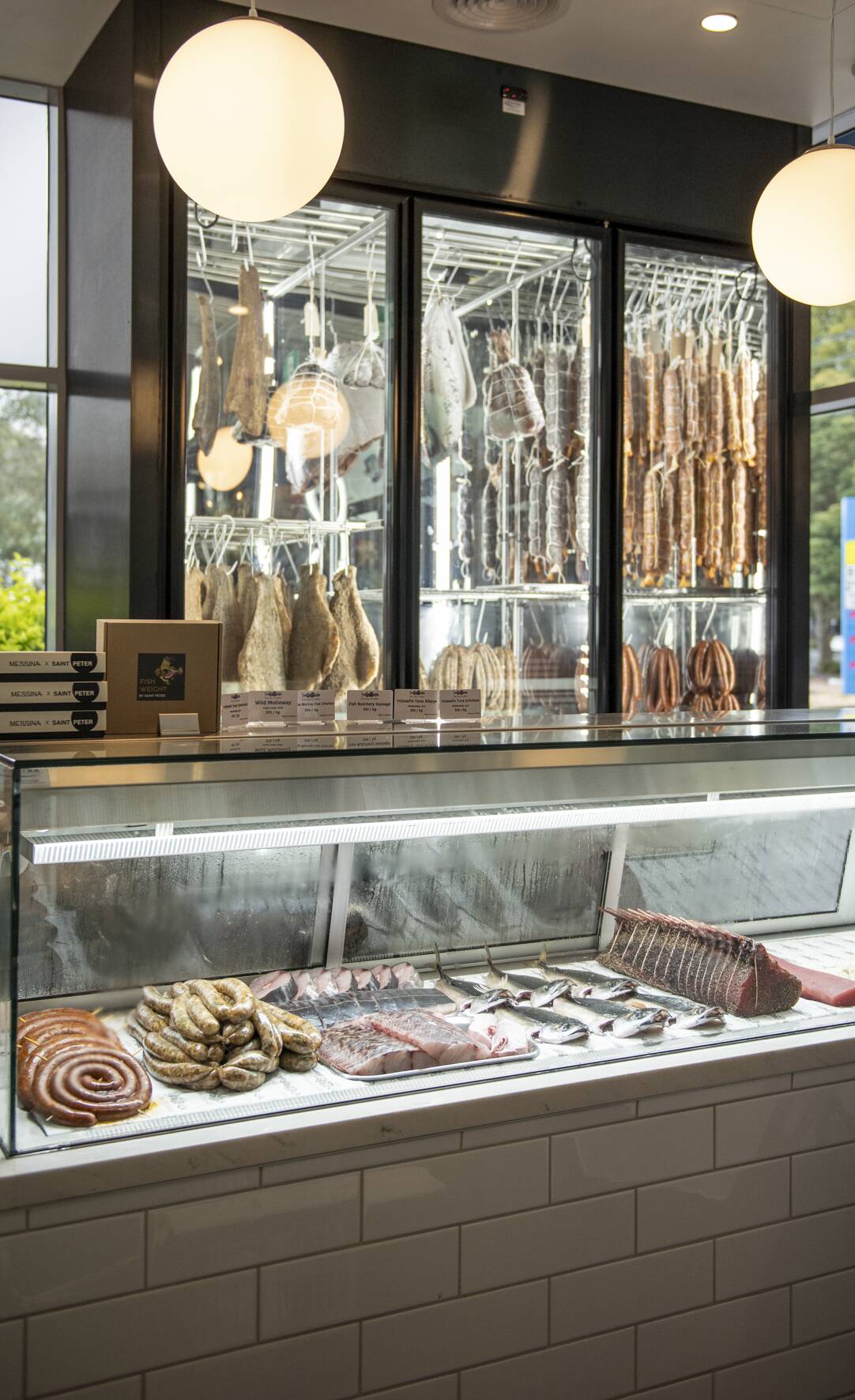
"The more diversity you can bring to the revenue that you make, the simpler business decisions become, and I don't want to ever sit on my hands and go 'All right, we'll wait 'til summer. We'll wait 'til things get simpler or easier or whatever'," he says.
"We want to be winning every month that we trade. We want to be ensuring that our team is stimulated and inspired and making sure that they have a great experience with us."
Savvy business decisions aside, the secret to Niland's success is his love of cooking for other people, just as he did as a young boy when catering for his family.
"I care about the work that I produce, I care what people think about the food that I cook," he says.
"Whether it's 20 people in our restaurant or whether it's for my wife and children at home, there is something really special about cooking for people. It is one of the most human expressions that we have."






